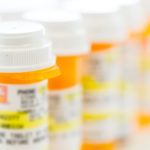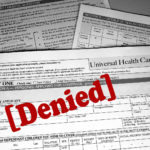[su_box title=”Keep in mind…” style”=”default”]
- Generic drugs are less expensive equivalents to brand name medications
- Every health insurance company has their own formulary list
- The FDA has the authority to take drugs off the market that are considered to dangerous for consumption
[/su_box]
Every year the U.S. Food and Drug Administration approves an inventory of new drugs to treat conditions from rheumatoid arthritis to aging skin.
But even if you have prescription drug coverage as part of your health insurance plan, not every new drug will be covered by your insurance.
Health insurance plans usually have their own list of approved medications. In order to know what medications your health insurance company will pay for, you need to familiarize yourself with your health plan’s “formulary list.”
Enter your zip code above and start comparing health insurance quotes in your area today!
Big Savings With Generic Drugs
A formulary list is simply the catalog of medications that are approved by the insurer and covered under the prescription drug benefits provided by the health plan.
Health insurance companies fight the rising cost of healthcare with cost-cutting measures that will are supposed to save you money.
For this reason, there has been a huge increase in generic prescriptions. Just as the FDA approves new medications, generic formulas of existing medications are also regularly approved.
Dozens of generic medications were approved in 2010, and each year more are cuing up in the pipeline for authorization.
For instance, Anthem Blue Cross has updated its formulary list to include the maximum number of generic drugs for its policy holders. Studies of Anthem’s customers show that a 20-mg prescription for Lipitor costs $170 per month.
The generic equivalent, Simvastatin, costs $15 a month for the same dosage. Anthem has added Simvastatin to their formulary list, and their policy holders pay only $4 for any drug on that list.
What is a generic drug?
A generic drug is a chemical copy of a name brand drug, the active ingredient being identical to the original.
Generic drugs must complete an approval process with the FDA that establishes comparable effectiveness, safety, and performance to the correlating brand-name medication.
Some formulas have multiple chemical compounds, and an exact copy may not exist in a generic form. In these cases, a similar pharmaceutical treatment may serve as an approved generic medication for certain conditions.
Health Insurance Plans and Brand Name Drugs
Some health plans have coverage for name brand prescription drugs at a fixed percentage with few restrictions. But increasingly prescription drug plans are urging patients to opt for generic medications.
When a pharmaceutical treatment has no identical generic equivalent, problems with prescription drug coverage are more likely to arise.
Your doctor may need to explain the reason why the brand name medication is needed. If the insurance denies the claim, your physician will need to recommend a generic equivalent.
Some insurance companies do allow coverage for medications prescribed by a doctor which have no generic alternative. If there is no generic equivalent recommended to treat a patient’s condition, some insurers will allow the treatment.
Your doctor will have to prescribe the drug by brand name, acknowledging that there is no alternative pharmaceutical therapy available on the market.
The medication will be placed on the formulary list especially for that patient, and covered the same way as generic prescriptions.
Why Was I Denied the Brand Name Medication?
There are other circumstances where an insurer may deny coverage for pharmaceutical therapy, even if the drug is on a health plan’s formulary list.
When a doctor prescribes a medication that’s not considered a standard accepted treatment for the patient’s condition, an insurer can refuse to pay for that drug.
So called “off-label” drug treatments are legal in America for FDA-approved drugs, but insurance companies may not pay for the drugs under the conditions of your policy.
If your doctor prescribes a brand name drug that’s an experimental or unconventional treatment for your condition, ask if there is a generic alternative pharmaceutical treatment.
A generic drug will be more affordable, or fully covered with many health plans, minus a small co-payment.
Due to intensified scrutiny of the NME approval process, applications for new drugs have ebbed slightly since the recall of Merck’s Vioxx in 2004.
Although no formal changes have been made in approval standards, requests for approval of new drugs have been more likely to be denied because of the heightened safety concerns.
Even before the recent market withdrawals of medications deemed too dangerous for the public, experts have recommended caution before starting a medical treatment regimen.
Explore changes in diet, habit, or lifestyle that are proven to have a positive effect on certain chronic conditions.
If the newest medication on the market isn’t covered by your insurer, it could turn out to be a blessing in disguise.
Waiting for your insurance company to update its formulary may provide a buffer zone between you and pharmaceutical recalls.
Find affordable health insurance by using our FREE online comparison tool!
[su_spoiler title=”References:” icon=”caret-square” style=”fancy” open=”yes”]
- https://www.hap.org/prescriptions/lists.php
- https://www.drugs.com/simvastatin.html
- http://www.fda.gov/Drugs/ResourcesForYou/Consumers/BuyingUsingMedicineSafely/UnderstandingGenericDrugs/ucm144456.htm
- http://www.dbsalliance.org/pdfs/GenericRx.pdf
- http://www.fda.gov/Drugs/InformationOnDrugs/ucm135821.htm
- http://www.fda.gov/Drugs/DevelopmentApprovalProcess/DrugInnovation/ucm20025676.htm
[/su_spoiler]





